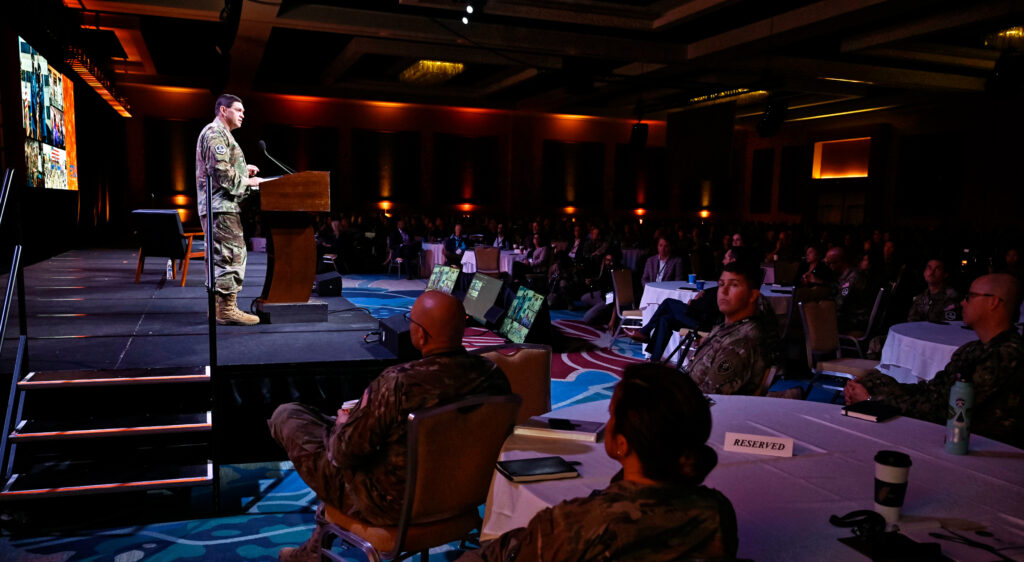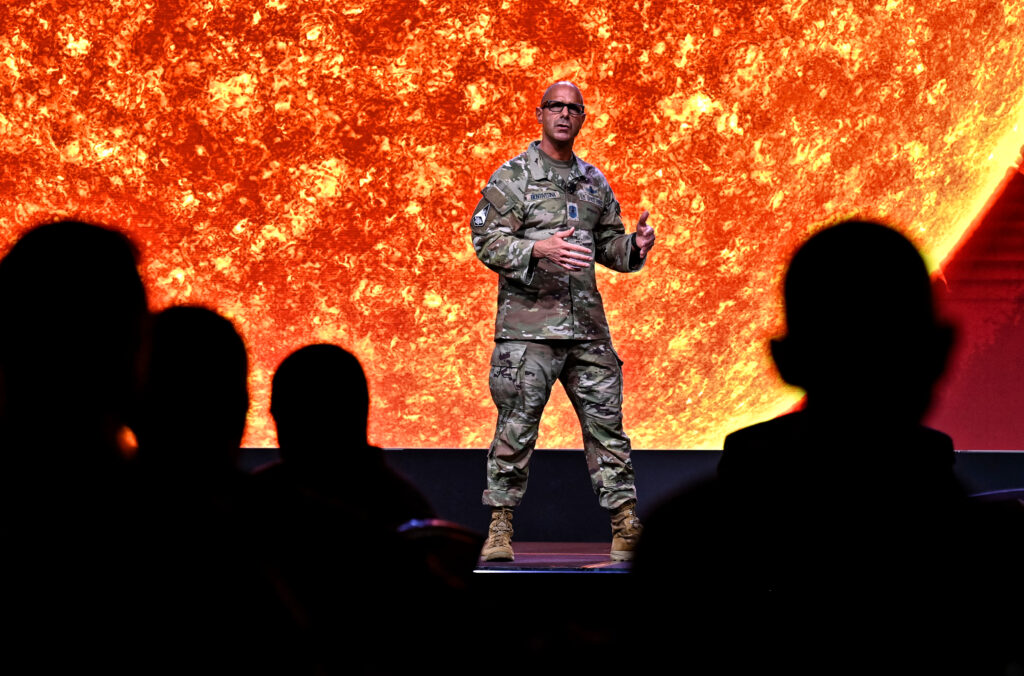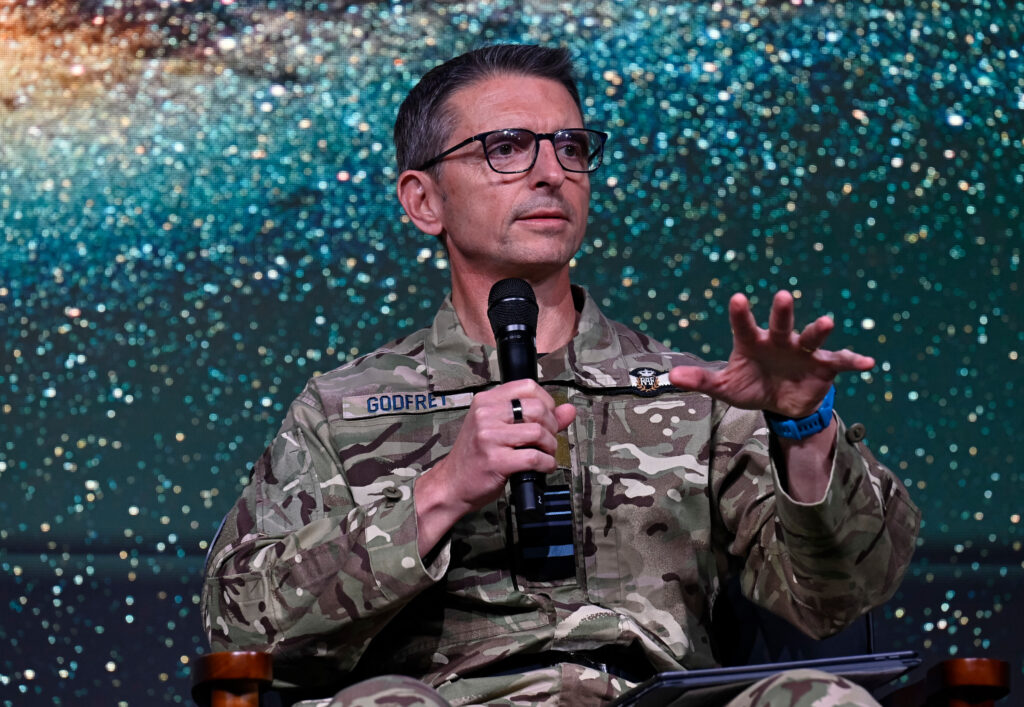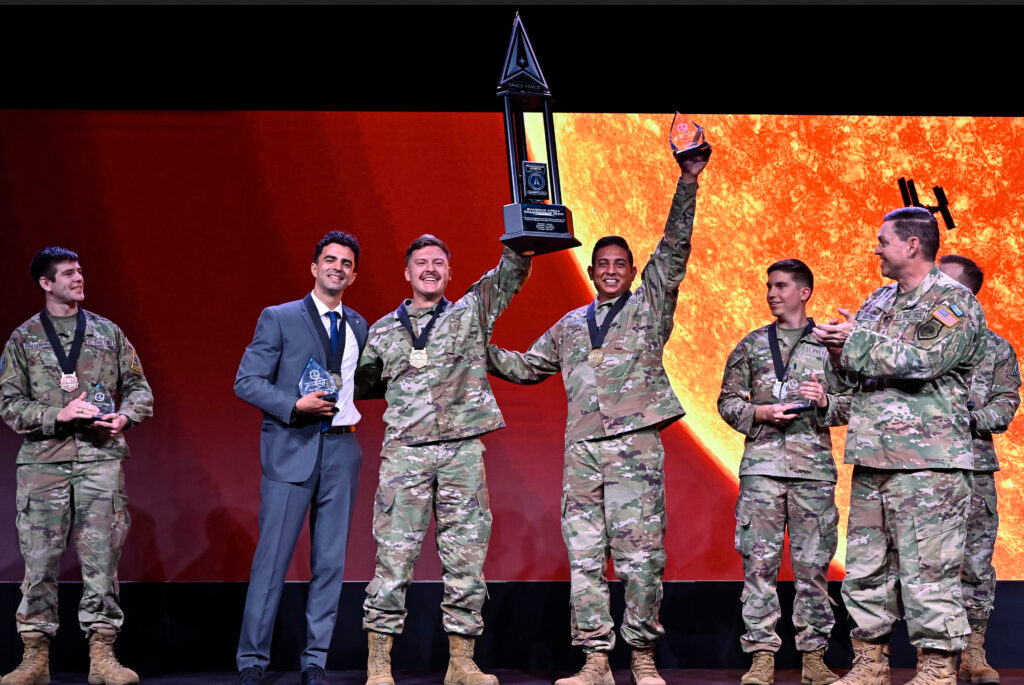
At the recent Space Force Association Spacepower Conference in Orlando, from December 10 to December 12, U.S. Space Force senior leaders outlined a comprehensive vision for the organization’s future, marking significant milestones as the service approaches its fifth anniversary.

Chief of Space Operations Gen. Chance Saltzman outlined six foundational “Space Force truths” that define the service’s unique identity, emphasizing that space is a critical warfighting domain and how Guardians are uniquely suited to control it.

While the Space Force has grown dramatically to nearly 15,000 military and civilian personnel in just five years, its senior leaders underscored the need for advancement across multiple focus areas, while celebrating its accomplishments.
Building a Distinctive Culture
The conference showcased the service’s commitment to developing a unique organizational identity. Chief Master Sgt. of the Space Force John Bentivegna described this as part of the “Guardian Experience” – an initiative designed to ‘elevate the journey’ of service members, cultivate a warfighting mindset and create the future.

The second annual Guardian Arena competition exemplified this, with 105 Guardians and international partners competing across academic, physical, and tactical challenges. The multi-day challenge based on the “Space Coast” at Cape Canaveral Space Station, Florida, crowned a team of Guardians from Peterson Space Force Base, Colorado, cementing them as the best of the best for 2024.
Transforming Personnel Management
Another key focus was the Space Force Personnel Management Act, which introduces unprecedented flexibility in military service. Katharine Kelley, deputy chief of Space Operations for Human Capital, and Lt. Gen. David N. Miller Jr., commander of Space Operations Command, highlighted the act’s potential to “close readiness gaps” by allowing Guardians more adaptable career paths.

The approach will integrate active-component Guardians and Air Force Reservists, offering both full- and part-time service options. While the program is still seeing development, significant progress has been made to see it become a reality for Guardians to leverage their expertise in the space domain.
International Collaboration
Air Marshal Paul Godfrey, assistant chief of Space Operations for Future Concepts and Partnerships, emphasized the importance of international cooperation.

The Combined Space Operations forum, or CSpO, represents a strategic approach to integrating allied space capabilities and developing shared strategies. As a forum of ten nations, it aims to expedite information sharing across its partners, including some NATO allies. In his role, Godfrey aims to shape the future of space operations by integrating international allies into the Space Force’s force design process.
“The risk calculus for our potential adversaries increases when they see ten nations in a room collaborating on integrated architectures of the future,” Godfrey said, referencing the importance of deterrence through coalition strength.

Looking Forward
As the Space Force completes its fifth year, leadership remains focused on three key objectives: shaping future space operations, harnessing collaborative power, and strengthening international partnerships. The underlying message gained from all senior leader perspectives is that space is no longer just a domain of exploration, but a critical area of national security and strategic importance.
“We are here because of people who accepted the uncertainty of a novel endeavor,” Saltzman noted, reflecting on the service’s remarkable journey. “The Space Force is here.”
Article author: Staff Sgt. Adam R. Shanks from the
Secretary of the Air Force Public Affairs
